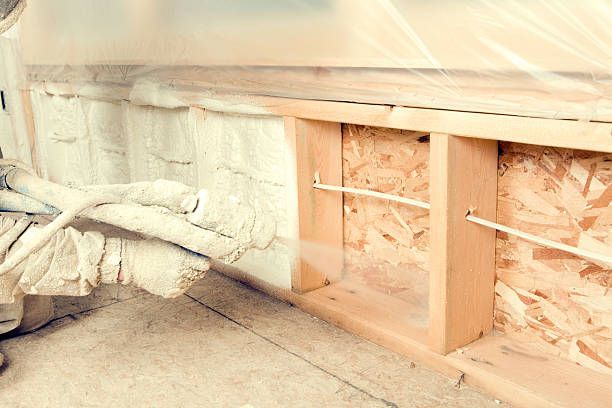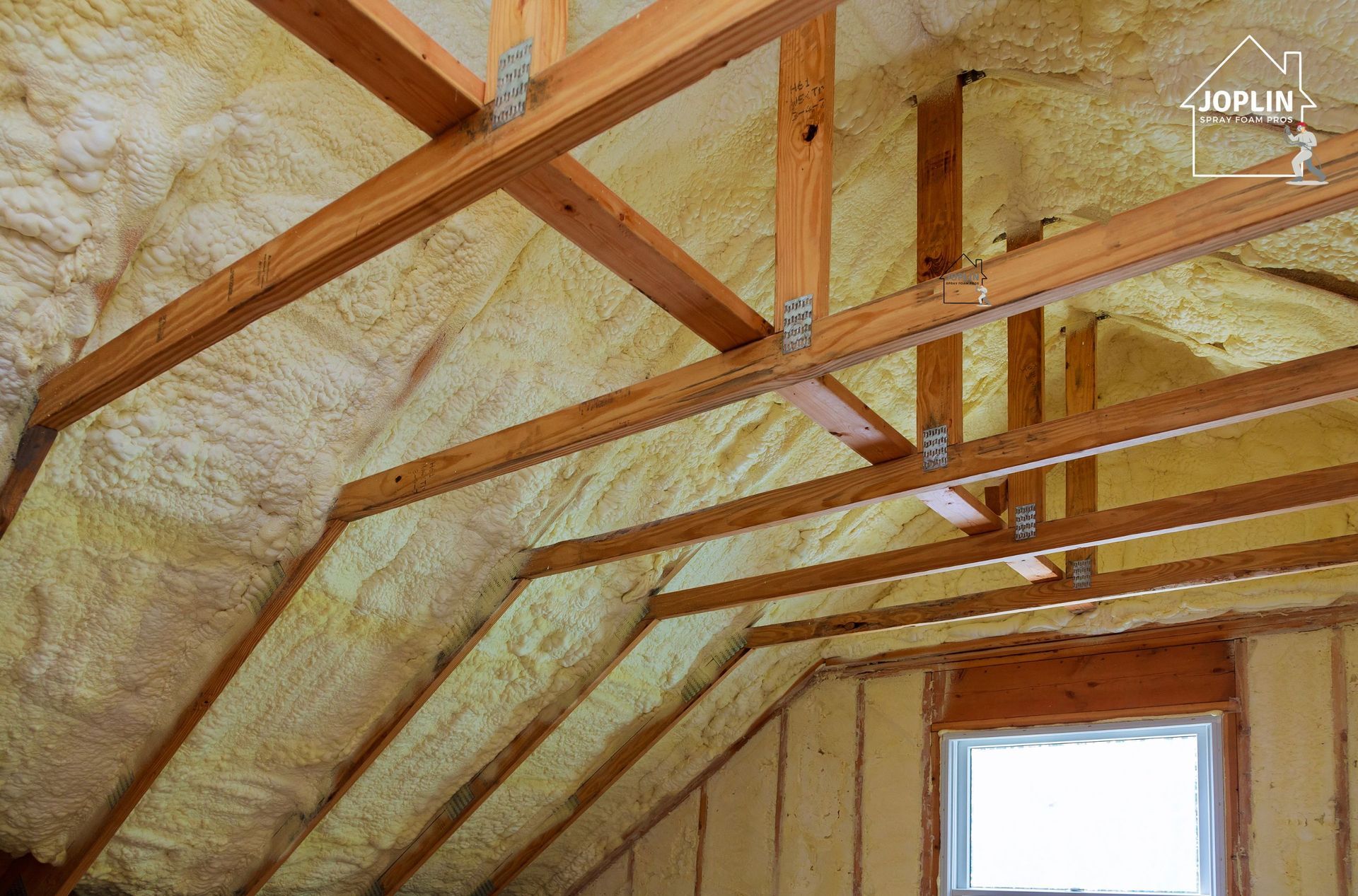Spray Foam Insulation for Commercial Retail Spaces in Joplin: Efficiency and Comfort
The Unique Needs of Commercial Retail Spaces

In the bustling commercial landscape of Joplin, Missouri, where businesses strive to provide a welcoming and comfortable shopping environment for customers, the importance of proper insulation cannot be overstated. Retail spaces, whether small boutiques or large shopping centers, require efficient temperature control, comfortable shopping conditions, and energy savings. This is where spray foam insulation comes into play as a powerful solution that offers both efficiency and comfort for commercial retail spaces. In this comprehensive guide, we will explore how spray foam insulation benefits commercial retail spaces in Joplin, enhancing energy efficiency and creating a comfortable shopping experience for customers.
Commercial retail spaces in Joplin face a set of unique challenges that demand specific insulation solutions:
Energy Efficiency: Maintaining an optimal indoor temperature is crucial for creating a comfortable shopping environment. Energy efficiency is not only environmentally responsible but also a significant cost-saving factor for businesses.
Customer Comfort: Comfortable shopping conditions are essential for attracting and retaining
customers. Temperature extremes, drafts, and discomfort can deter potential buyers.
Sound Control: Retail spaces often require soundproofing to ensure a pleasant shopping experience. Reducing noise from HVAC systems, neighboring businesses, and street traffic is vital.
Product Preservation: Proper insulation helps protect merchandise from extreme temperatures and humidity, ensuring the quality and longevity of products.
Sustainability: Businesses are increasingly looking for sustainable solutions that reduce their carbon footprint and appeal to environmentally conscious consumers.
Spray foam insulation addresses these challenges effectively, making it a valuable investment for commercial retail spaces in Joplin.
Understanding Spray Foam Insulation
Spray foam insulation is a unique insulation material made of two components—polyurethane and isocyanate—that are combined and sprayed onto surfaces. It expands to fill gaps and cavities, forming an airtight seal. There are two primary types of spray foam insulation: open-cell and closed-cell, each with distinct characteristics and applications.
Open-Cell Spray Foam Insulation:
Lower density and less rigid than closed-cell foam.
Offers excellent soundproofing properties, making it a good choice for retail spaces where noise control is important.
Provides thermal insulation with a lower R-value compared to closed-cell foam.
Has some flexibility, making it suitable for areas that may experience slight structural movement.
Closed-Cell Spray Foam Insulation:
Higher density and rigid, offering greater structural support.
Provides superior thermal insulation with a higher R-value, making it more effective in extreme temperature control.
Acts as a moisture barrier, preventing water infiltration.
Offers air-sealing qualities, creating an airtight barrier.
Both types of spray foam insulation have their advantages and are suitable for various applications. The choice between open-cell and closed-cell foam depends on the specific needs and conditions of the retail space.
Benefits of Spray Foam Insulation in Commercial Retail Spaces
Energy Efficiency: Spray foam insulation creates an airtight barrier, minimizing heat transfer. This results in reduced heating and cooling costs, making it more energy-efficient for retail spaces. A comfortable shopping environment can be maintained without overworking HVAC systems.
Thermal Comfort: Customers are more likely to stay longer and make purchases in a comfortable shopping environment. Spray foam insulation maintains consistent indoor temperatures, ensuring shoppers are not subjected to uncomfortable temperature fluctuations.
Sound Control: Open-cell spray foam insulation is particularly effective at reducing noise, making it ideal for retail spaces. It helps create a quiet and pleasant shopping experience, which is essential for customer satisfaction.
Moisture and Mold Resistance: Closed-cell spray foam insulation acts as a moisture barrier, preventing water infiltration and moisture-related issues. This protection is essential for preserving merchandise and maintaining a healthy shopping environment.
Product Preservation: Maintaining consistent temperature and humidity levels in retail spaces is crucial for preserving merchandise, particularly sensitive items like clothing, electronics, and food products.
Increased Sustainability: Many businesses are now emphasizing sustainability. Spray foam insulation can contribute to a lower carbon footprint by reducing energy consumption, thereby appealing to environmentally conscious consumers.
Quick Installation: Spray foam insulation can be applied quickly and efficiently, minimizing disruptions to retail operations during installation.
Longevity and Durability: Properly installed spray foam insulation can last for many years without needing replacement or significant maintenance.
Installing Spray Foam Insulation in Commercial Retail Spaces
The installation of spray foam insulation in commercial retail spaces is a specialized process that should be carried out by experienced professionals. The steps involved in the installation process include:
Assessment: An insulation contractor assesses the retail space to determine the scope of the project, including the areas that require insulation.
Preparation: The installation area is prepared by removing any existing insulation or debris and ensuring that surfaces are clean and dry.
Application: The spray foam insulation is applied using specialized equipment. It expands upon application, filling voids and gaps to create a seamless, airtight seal.
Curing: The insulation cures and hardens within a short period, usually within 24 hours.
Trimming: Excess foam is trimmed to ensure a clean and even finish.
Final Inspection: The contractor conducts a final inspection to ensure the insulation is properly installed and provides the desired insulation properties.
Selecting an experienced insulation contractor is crucial to ensure a successful installation. It's advisable to obtain multiple quotes and check references before choosing a contractor for your project.
Cost Considerations
The cost of spray foam insulation installation can vary depending on factors such as the type of foam used (open-cell or closed-cell), the size of the retail space, and any specific requirements. While the initial investment may be higher than traditional insulation materials like fiberglass, businesses can recoup these costs through energy savings and the improved shopping experience they provide to customers.
Maintaining Spray Foam Insulation
Proper maintenance of spray foam insulation is essential to ensure its longevity and continued performance. Here are some maintenance tips for commercial retail spaces:
Regular Inspections: Periodically inspect the insulation for any signs of damage or degradation. Address any issues promptly to prevent further damage.
Routine Cleaning: Keep the insulation surfaces clean and free from dust and debris. Regular cleaning helps maintain its effectiveness.
Seal Gaps and Cracks: Ensure that any gaps or cracks in the insulation are sealed to maintain an airtight barrier.
Monitor Moisture Levels: Keep an eye on moisture levels in the retail space and address any humidity issues promptly to prevent moisture-related problems.
Reapply if Necessary: In the event of significant damage or wear and tear, consider reapplying spray foam insulation in affected areas.
You might also like
SPEAK TO A TEAM MEMBER TODAY
All Rights Reserved | Joplin Spray Foam Pros
Website Managed by
Leads By Vinny


